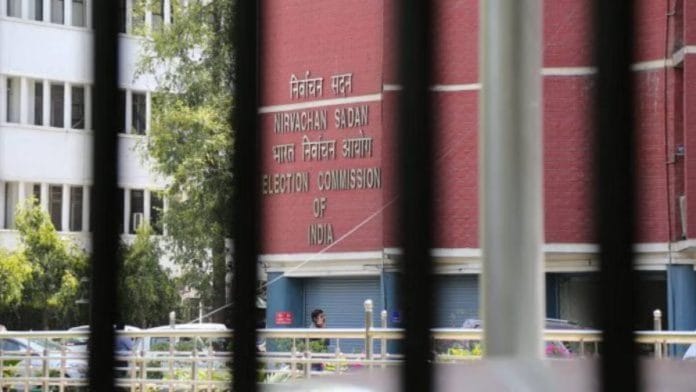The opposition is raising alarms over the timing and intent of Special Intensive Revision (SIR) 2.0. It will be carried out across 12 states and Union Territories, covering nearly 51 crore voters.
Announced just two days before the first phase of the Bihar Assembly elections, the exercise is being presented as a routine clean-up of electoral rolls. But with over 68 lakh names deleted after the previous verification in Bihar alone, the entire exercise becoming the centre of debate is natural.
This is India’s ninth such drive since Independence, yet the scale, timing, and political undertones bring nationwide attention.
On one hand, the Kerala government is going to challenge SIR in court; on the other, West Bengal Chief Minister Mamata Banerjee is on the streets protesting against it. Across the political spectrum, the opposition seems united in its charge that the Election Commission’s SIR is not a neutral administrative exercise but a political one. The accusation is that this drive risks disenfranchising Indian citizens, particularly Muslims, who form a significant part of the population in several border districts.
Many argue that the timing of it is no coincidence; it conveniently aligns with the BJP’s electoral interests, turning what should have been a bureaucratic process into another contest over who gets to belong.
Real threat vs fake allegations
This moment feels eerily reminiscent of the NRC-CAA years, the protests, the fear, the charged rhetoric. But the SIR drive is not the same. Unlike the NRC, this is a periodic exercise. The opposition has been quick to allege that it targets Muslims, but there is no evidence to support that claim. Without data or official disclosure of deleted names, much of the noise rests on speculation, fear, and politics.
I am not saying that the process is flawless or beyond scrutiny—transparency from the Election Commission is one of the most important questions. But when legitimate concerns are buried under exaggerated fears and political theatrics, the real opportunity to speak for the ordinary people, sadly, gets lost.
The real issue with the SIR drive is not about targeting one community, but the potential to disenfranchise millions of genuine voters, especially those from marginalised and rural backgrounds. These individuals often lack awareness or access to bureaucratic channels and might fear the system. One needs to go among such people to understand it.
As per the Report Migration in India, 2020-21, based on Periodic Labour Force Survey (PLFS) 2020-21, released by the Ministry of Statistics and Programme Implementation (MoSPI), the total migration rate in India was 28.9 per cent and in rural was 26.5 per cent. Out of the total migrant persons, around 10.8 per cent persons migrated due to employment-related reasons.
In simple words, SIR shifts the burden of proof onto the poorest and most transient citizens, asking them to constantly validate their existence.
Also read: Mamdani signals a shift in American politics. And how immigrants see themselves in it
Silencing the voiceless
India is a country where access to documents and digital systems is still uneven. Even wealthy nations have failed such tests, one only needs to recall the Windrush scandal in the UK, where thousands of long-term residents from Commonwealth countries, particularly those from the Caribbean, who arrived between 1948 and 1973, were wrongly detained or deported because they could not prove their right to live in the country.
A nation may be known for its citizens’ trust in the system, but a system that blindly prioritises paperwork blindly over people is bound to fail. India should not risk walking down that path and must be prepared to address such genuine issues beforehand.
And let’s not forget what the right to vote really means for the poor and marginalised people in this country. While it is not a test of citizenship, it is their only way of having a say in the system. For some, this right is not about policy or ideology, but about hope, the one moment when the powerful come to their doors, when their existence is acknowledged, even if briefly.
Elections become, in that sense, a rare festival of democracy where they are not invisible. The promises made to them may be broken, and their struggles may return once the banners are gone, but that one right still carries a fragile kind of hope. To take it away, even through bureaucratic oversight or indifference, is to snatch away more than a vote; it is to silence those who hardly have a voice.
There are ways to address this reality without turning it into a hostile exercise. What is needed is not speed but sincerity, transparency, accountability, and time. A process meant to strengthen democracy cannot afford to alienate its weakest participants.
Before conducting such a massive verification, the state could work with NGOs and local bodies to assist citizens in gathering documents—ensuring no one is left out simply because of poverty or displacement. A drive for documentation, not deletion, would serve the spirit of democracy far better.
Amana Begam Ansari is a columnist and writer. She runs a weekly YouTube show called ‘India This Week by Amana and Khalid’. She tweets @Amana_Ansari. Views are personal.
(Edited by Ratan Priya)






